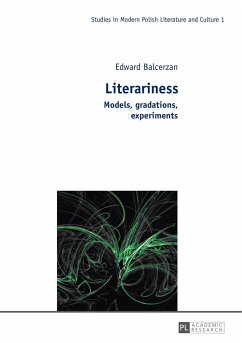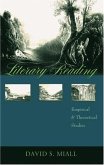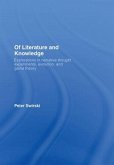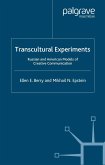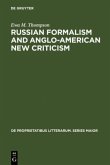The deepest crises cannot destroy the universal model of literariness. It maintains its appeal for participants in literary communication as a «contradictory» model. This thought recurs in many epochs. Literariness involves suspending the formal or logical norms of contradiction (lex contraditionis). In everyday speech, it is not permissible for «A» to simultaneously be «not-A»; in literary structures this is the norm. This is both in the ideas, and in the tensions between the artificiality and naturalness of speech, the structure and the chaos of the plot, experimentation and revitalization of tradition, objective observation and a biased vision of the world, its visibility and invisibility, expressibility and inexpressibility, and a realistic and an imaginative focus. Executions of this model are gradative.
Bitte wählen Sie Ihr Anliegen aus.
Rechnungen
Retourenschein anfordern
Bestellstatus
Storno

